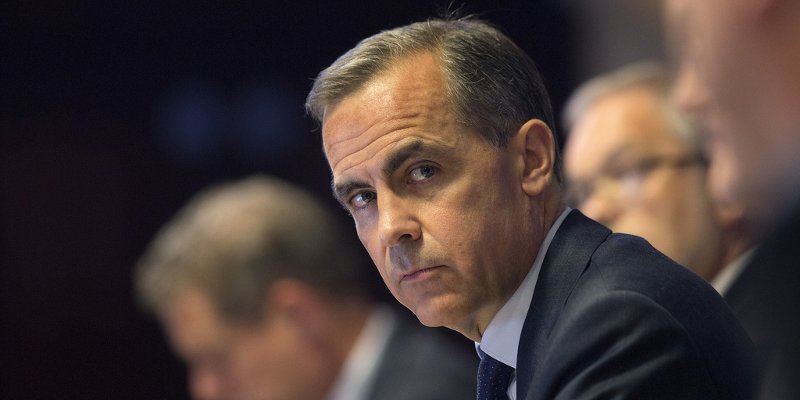For what it’s worth, I would still like to see higher wage growth and stronger resilient economic growth before a rise in rates. Brexit remains a concern.

Tony Ward is chief executive of Clayton Euro Risk
Another week, another debate about interest rates.
Is now the right time for them to go up? If not, when? And should we turn off the QE tap at the same time?
It’s all becoming rather interesting.
Last week, members of the Bank's nine-strong Monetary Policy Committee (MPC) voted 7–2 to keep interest rates on hold at 0.25%.
Two members of the Bank's rate setting committee, Ian McCafferty and Michael Saunders, voted for the third meeting in a row to increase rates, arguing that inflation would continue to overshoot the target and a move now would prevent a sharper rise.
The rest of the nine-strong committee, including the Bank's Governor Mark Carney (pictured) voted to keep rates on hold, saying that business investment, consumer confidence and consumption remained weak.
So, same old, same old. Or is it?The committee was talking in much stronger terms about an increase.
The nine policymakers on the panel believed ‘some withdrawal of monetary stimulus was likely to be appropriate over the coming months’. The Bank reiterated that rates may need to rise by more than expected in financial markets. The MPC said there was a ‘slightly stronger picture’ for the economy since its forecasts last month, thanks to signs of a firmer housing market, stronger employment and a rebound in retail and new car sales.
Samuel Tombs, chief UK economist at Pantheon Macroeconomics, said the MPC had ‘ratcheted up’ its rhetoric surrounding a rate rose.
What to make of this? Is the Bank going to follow through with a rise in immediate future or are is it just dangling the possibility?
Some analysts have suggested that the Bank is trying to persuade the markets that rates will rise to boost the pound, which will help reduce inflation and thereby negate the need for a rate rise.
For now, it’s certainly had the desired effect. The pound rose above $1.36 and the yields on shorter-dated bonds rose 0.1% to 0.47% – both to their highest levels since the Brexit vote.
Of course, we’ve been here before with Mark Carney. The Governor has form here with shifting forward guidance.
The markets have been let down several times in the past, expecting a rate rise on the back of his rhetoric. As recently as June, Mr Carney was declaring that ‘now is not yet the time’ to put up rates’.
Yet I see a change. Just after the recent MPC vote, on Friday, the most dovish member of the MPC, Gertjan Vlieghe, said: “The evolution of the data is increasingly suggesting that we are approaching the moment when the bank rate may need to rise.”
He added that the moment ‘may be as early as the coming months’ and hinted at two rate hikes.
Mr Vieghe’s comments had a dramatic impact on the markets because he has been the strongest opponent of a rate rise. “Until recently, I thought the appropriate response of monetary policy was to be patient,” he explained.
He suggested that his opinion has been swayed by signs that households and businesses were taking on more debt. Strong jobs growth and signs that wage pressure was ‘gently building’ were also factors in his decision.
Markets were pricing a first rate rise for the end of 2018 before Thursday’s announcement.
Now they are pricing the first increase for November, with a second before the end of next year.
Fabrice Montagne, Barclays, forecast that this month’s 7–2 vote to leave rates on hold would be reversed in November, with at least seven committee members backing an increase.
Others remain more sceptical. HSBC believes central banks are now using words rather than interest rate changes to push the currency up, testing the effect on inflation and on growth in a way that is easily reversible before moving on to actual hikes. BNP Paribas sees little benefit in a single rate hike and no prospect of a sustained series of hikes, leaving its analysts with the view that this is a bluff by the MPC.
So, the speculation continues although I feel investors are far from convinced. Monetary policy remains confusing.
For what it’s worth, I would still like to see higher wage growth and stronger resilient economic growth before a rise in rates. Brexit remains a concern.
All eyes on November, then. Let’s see if the MPC stands by its rhetoric this time around.



